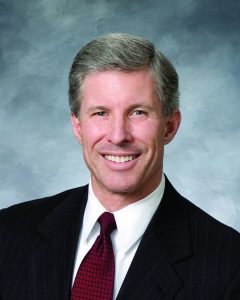Successful leadership must be sustained

Greg Van Ness
By Greg Van Ness
Leading successfully is challenging, as anyone who has tackled a leadership role knows well. Much has been written and will continue to be written about the keys to successful leadership — in fact, Amazon currently lists more than 180,000 entries for “leadership books” on its website. Leaders make an outsized impact on their teams and organizations, for better or for worse, and few weeks go by without a headline highlighting the fall from grace of a prominent CEO, most recently illustrated by John Stumpf’s departure as CEO of Wells Fargo Bank.
Organizations understand the importance of effective leadership and are investing considerable sums of money to build their leaders’ capabilities. McKinsey & Co. estimates that companies in the U.S. spend over $14 billion annually on leadership development, yet Gallup’s most recent survey on employee engagement in companies across America indicates that about 70 percent of employees feel disengaged in their jobs and don’t like their bosses. Clearly, there’s plenty of room for improvement when it comes to sustaining successful leadership.
Fundamentally, leading effectively is about generating great results through others and doing it sustainably helps a leader stay employed. Generating great results through others is a very different task than performing well as a high-level individual contributor, which is the pool from which most leaders are chosen. That’s where the leadership adventure begins, and that’s also where many leaders begin to derail, for the traits and skills of the high-level individual contributor are not necessarily the attributes that are most effective in a leadership role.
Leading people, as opposed to managing processes, is fraught with complexity and ambiguity by virtue of the unique nature of the individuals who constitute the teams we lead, and multiple internal and external circumstances such as the organization’s culture and goals and our customers and the competitive environment. Measuring and quantifying the behaviors and traits of successful leaders is elusive and inexact, but there is an emerging body of knowledge based on broad studies that indicate there are some fundamental skills that give leaders a better chance of success. It turns out that it’s not high IQ and technical competence that counts the most. It’s high E.Q. (emotional quotient, or intelligence) that is the most important attribute and skill set for a leader to possess.
Emotional intelligence became a buzzword with the publication of Daniel Goleman’s book by that name in 1995, yet it is only now becoming a cornerstone of how leaders are selected and developed. In my experience in a variety of leadership roles over the past 30-plus years, it has become increasingly apparent to me that emotional intelligence is the primary factor driving a leader’s rise or fall, and the leader’s team and organization along with him or her.
In a nutshell, emotionally intelligent leaders possess high levels of self-awareness, self-control, motivation, empathy and relationship-building skills, all of which are far more important to a leader’s success than his or her technical knowledge base. Looking for those attributes when choosing leaders, and helping them develop those skills, sets successful senior leaders and their organizations apart from their competitors.
Successful leadership is a journey, enhanced by the seasoning and wisdom we gain through our failures and setbacks, and accelerated by our ability to select and develop the right sort of team. The world needs more good leaders who have the grit, resilience and high E.Q. that leadership roles require, and who also invest time and energy building their company’s emerging leaders.
As you reflect on your leadership role and your leadership challenges, ask yourself how you can build the necessary leadership capabilities in yourself and in your team to sustain your organization’s success. When we lead by example, with high moral character and positive emotion, put our concern for our people as high as our concern for results, and keep our team’s focus on why we serve our customers and the greater good of our communities, great things can happen and probably will. That’s why effective leaders matter, and why everyone wins when we sustain successful leadership.
• Greg Van Ness is the CEO of Tolman & Wiker Insurance Services LLC in Ventura and a member of the California Lutheran University School of Management Advisory Council.












